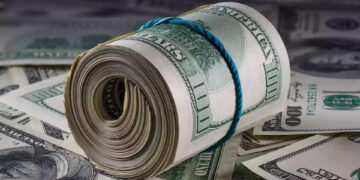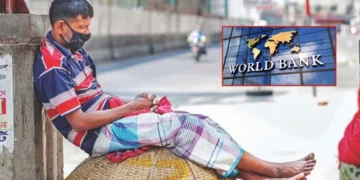The 2025–26 Bangladesh budget proposes higher taxes on cigarettes, aiming to curb tobacco use and protect public health, despite economic reliance on the tobacco industry.
For the fiscal year 2025–26, Economic Adviser Dr. Salehuddin Ahmed has proposed a national budget of BDT 7,89,999 crore. This marks the 54th national budget in Bangladesh’s history and the first under the current interim government. It’s also the first time an economic adviser not a finance minister—has delivered the national budget speech, which was aired live on Bangladesh Television on Monday, June 2.
While the budget covers a wide range of economic and social priorities, one of the most talked-about aspects is the renewed crackdown on tobacco products. In line with Bangladesh’s public health goals, the government has proposed several measures that will significantly raise the cost of smoking and tobacco use.
Cigarettes: The Prime Target of Tax Hike
Among all sectors, cigarettes are expected to face the steepest rise in taxation—a continuation of Bangladesh’s longstanding public health initiative to curb tobacco consumption. The National Board of Revenue (NBR) is likely to propose:
-
Higher supplementary duties on low-tier and medium-tier cigarette brands.
-
Increased VAT at the production and distribution levels.
-
Expanded tax coverage for e-cigarettes and smokeless tobacco products like zarda and gul.
This is not just a fiscal strategy. The move aligns with Bangladesh’s declared goal of becoming a tobacco-free nation by 2040, a commitment made by Prime Minister Sheikh Hasina. However, implementing such bold reforms is no easy feat.
An Economic Tug-of-War
The tobacco sector contributes an estimated BDT 30,000 crore annually to the national treasury, making it one of the top sources of government revenue. From tobacco farmers and cigarette factory workers to transporters and small retailers, the industry supports hundreds of thousands of jobs both directly and indirectly.
Yet public health experts caution that the healthcare costs associated with tobacco-related illnesses such as cancer, stroke, and respiratory diseases—far outweigh the sector’s financial benefits, creating a long-term burden on the nation’s healthcare system and economy.
Market Implications of the Tax Hike
The proposed changes are likely to:
-
Increase the price of each cigarette pack by Tk 5–15, depending on the brand and tax tier.
-
Push consumers toward cheaper, unregulated alternatives such as bidis.
-
Encourage the illicit trade of cigarettes, particularly along porous border regions, where tax evasion and smuggling could rise.
These outcomes raise concerns that while the tax measures are well-intentioned, they could lead to market distortion and enforcement challenges unless accompanied by strict regulation and monitoring.
Read More: Budget Prioritises People Over Infrastructure: Finance Adviser
Tobacco Seeds and Cigarette Paper Also Targeted
Currently, tobacco seeds can be imported duty-free under a 0% customs duty rate. This is set to change. The new budget proposes:
-
A new HS Code category for tobacco seeds, making it easier to monitor and regulate imports.
-
A 25% customs duty on tobacco seed imports to discourage tobacco cultivation at the root level.
In addition, the supplementary duty on cigarette paper a key raw material in tobacco manufacturing will be increased from 60% to 100%. This will raise the cost of production for cigarette manufacturers and, in turn, hike retail prices further.
Back in January 2025, the government already increased cigarette prices and taxes by 5–7% across four tiers. As a result, the core tax structure for cigarettes remains unchanged in this budget. The current measures are focused on tightening control over production inputs and broadening the tax net to include smokeless products and alternatives.
A Historic Shrink in Budget Size
In a surprising turn, the total proposed budget for FY 2025–26 is BDT 7.90 lakh crore, which is Tk 7,000 crore less than the original 2024–25 budget. This is the first time in Bangladesh’s history that the national budget size has been reduced, signaling a more conservative and realistic fiscal approach amid global and domestic economic pressures.
The Finance Ministry has also announced that this budget is still open to public feedback. Citizens are invited to share their views, which will be considered before the final version is passed.
A Balancing Act Between Health and Revenue
The 2025–26 budget proposal places public health front and center, especially through aggressive tobacco taxation. While this aligns with Bangladesh’s long-term vision for a healthier society, it also puts pressure on a sector that continues to play a significant role in employment and revenue generation.
The success of these measures will depend not just on tax policy, but on effective enforcement, awareness campaigns, and support for tobacco farmers transitioning to alternative livelihoods. Only then can Bangladesh move closer to its dream of a tobacco-free generation—without leaving behind those whose lives depend on the industry.
Source: RTV
















